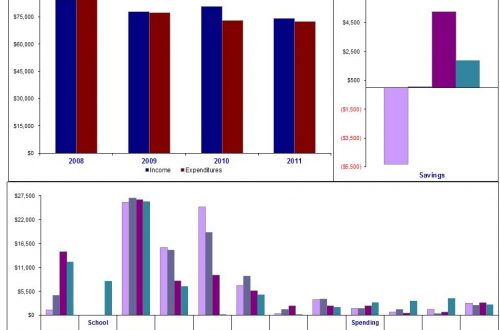
Let’s Talk About Emergency Funds (part 1)
Monday was tax day, so this seems like an appropriately themed week to return to my roots as a personal finance blogger. I had been considering running an updated version of my You Are Not Paying 35% in Federal Taxes from 2016, partly because I paid a lot more in taxes this year than any previous year and still did not come close to paying 35% in federal taxes, but honestly, I just never found the time to sit down with the numbers. And then, another topic came up.
A lot of the time, when I write about finances here, you will see me refer to Stacking Benjamins. Stacking Benjamins is a great financial podcast that also talks about movies and board games. They claim you should learn nothing from the show, and maybe you don’t, at least not from the show. Instead, you learn from the questions the show causes you to ask. On Monday’s show, there was a listener question about emergency funds, and that caused one of the newer members of the Stacking Benjamins facebook page to ask, starting out, how much should you have in an emergency fund?
The answer to that is – it depends. The answer depends on both who is asking the question and who is answering it. Dave Ramsey used to advocate for a $1,000 emergency fund while you are paying off debt. If you are in a high cost of living area, others might recommend that you start with $2,000. There are still others who believe your emergency fund should have enough money in it to cover 3-6 months worth of your living expenses. And then there may even be people (though not too many personal finance folks) who say, why bother? In a true emergency, it does not matter how much you have saved, it will not be enough.
And honestly, depending on the circumstances – who you are, what your financial situation is like, etc, I might very well give you some version of every single one of those answers.
Let’s start at the
very beginning. To start, how much should you have in an emergency fund?
$1,000? $2,000?
$5. Seriously, if you are just starting your emergency fund, do not think you
have to wait until you have a full $1,000 or even an extra $100 to set aside
before you start your emergency fund. $5 is plenty to start. Simply having any
money set aside to help cover you in the case of unexpected expenses will make
a difference.
How much should you grow your emergency fund to before you consider if fully funded?
The answer to this question will be very dependent on where you are in both your life and your financial journey. The purpose of an emergency fund is to cover unexpected expenses that might pop up. A lot of people use the example of needing to replace an appliance should it fail, or fix a furnace in the middle of winter. But if you are renting, that is often not your responsibility. So think about what expenses you are responsible for, and what some unexpected circumstances might be.
Do you have a car? What happens if it needs a repair? Does your job not pay sick time? What happens if you get sick and cannot work? Do you have health insurance ,but it is a high deductible plan?
Basically, consider your situation and what the most likely event to cause a financial hardship is, and then figure out how much you might need for that. A few hundred for a car repair? A thousand to cover the rent if all your roommate move out and you want to stay? A couple thousand for if you break a leg and have to pay your full insurance deductible at once?
Honestly, when you are starting out with your emergency fund, no matter what age, the purpose of that fund is simply to help you make it through an event that has unplanned for expenses. This is true if you are just starting out in life and trying to keep yourself from getting into mountains of credit card debt, or if you are more established and trying to dig yourself out from under that mountain of high interest debt. Simply start with something. Have something set aside that you can draw on that will keep you from having to use credit cards or a high interest personal loan, or leave you without a car. Something, anything, will help, and it will help keep you on the right track.
(Please return for Part 2, coming on Saturday.)



